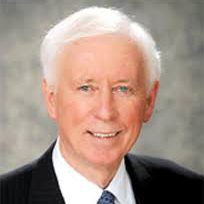It’s a Matter of Life and Death
(24.12.12) They came to Cairo, Egypt last week to participate in a workshop titled “Security of Emergency Health Care in the Field”.
They numbered more than seventy physicians and other health professionals from the areas of civil unrest and revolution in the Near East.
They work in the midst of conflict in Egypt, Libya, Syria, Yemen, Kenya, Pakistan and Afghanistan.
They, at great risk of their lives, provide emergency care for all who are injured making no distinction between patients except those based on clinical need.
They are heroes.
Insecurity of health care in armed conflicts and other emergencies is a massive humanitarian problem. Armed conflict and other emergencies increase the need for health care at precisely the moment when, because of insecurity (danger), it is most difficult to address this need.
In a blog November 5, “Health Care in Danger” I reported on the International Committee of the Red Cross’s (ICRC) initiative “Health Care in Danger” which over the next four years will seek to address this challenge.
The workshop in Cairo last week was the second of a series of expert consultations the ICRC will hold and was sponsored by the ICRC and the Egyptian Red Crescent Society.
The World Medical Association (WMA) is working closely in support of this effort and I was present to provide the WMA prospective. Participating also was Dr. Vivienne Nathanson, Director of Professional Activities at the British Medical Association and leader of the WMA work group on the Health Care in Danger initiative.
In wide ranging discussions based on actual experience in the field those attending the workshop examined:
- How ambulance drivers, first-aiders, paramedics and other health-care personnel and their associated institutions can enhance their security and access to those in need through increased preparation and by practicing impartial emergency health care in armed conflict and other emergencies;
- The “rights” of these health-care personnel and those they seek to assist to be respected and protected.
Coming out of the workshop will be practical recommendations to increase the security and delivery of effective and impartial emergency health care in the field considering a variety of issues according to four main themes:
- Practical measures to assure security of the wounded and sick and the providers of emergency health care in the field;
- Practical measures to assure the security of vehicles, vehicle movements and first aid posts involved in emergency health care in the field;
- The acceptance and security of health-care workers and their associated institutions to provide emergency health care in the field in armed conflict and other emergencies;
- Essential professional support for the providers of emergency health care in the field during armed conflict and other emergencies.
I returned home from this workshop in Cairo with a new understanding of and appreciation for the work members of the medical profession are doing in areas of conflict.
On behalf of the WMA I would like to thank the International Committee of the Red Cross and the Egyptian Red Crescent for the opportunity of participating in this most important effort.
I am reminded of a quotation that for me captures the essence of this work.
Over a century ago, actually in 1920, former US President Theodore Roosevelt gave a speech at the Sorbonne in Paris, France. This speech is widely known by the title “The Man in the Arena”. It goes like this:
Its not the critic who counts,
Not the man who points out how the strong man stumbles, or where the doer of deeds could have done better.
The credit belongs to the man who is actually in the arena.
Whose face is marred by dust, sweat and blood.
Who strives valiantly.
Who errs.
Who comes up short again and again.
Because there is no effort without error and shortcoming.
But who does actually strive to do the deeds
Who knows great enthusiasms, the great devotions.
Who spends himself in a worthy cause.
Who at the best, in the end, knows the triumph of high achievement.
And who at the worst if he fails at least fails while daring greatly.
So that his place shall never be with those cold and timid souls who neither know victory nor defeat.”
“Health Care in Danger” is that worthy cause.
The ICRC, Red Crescent and WMA are in that arena.

